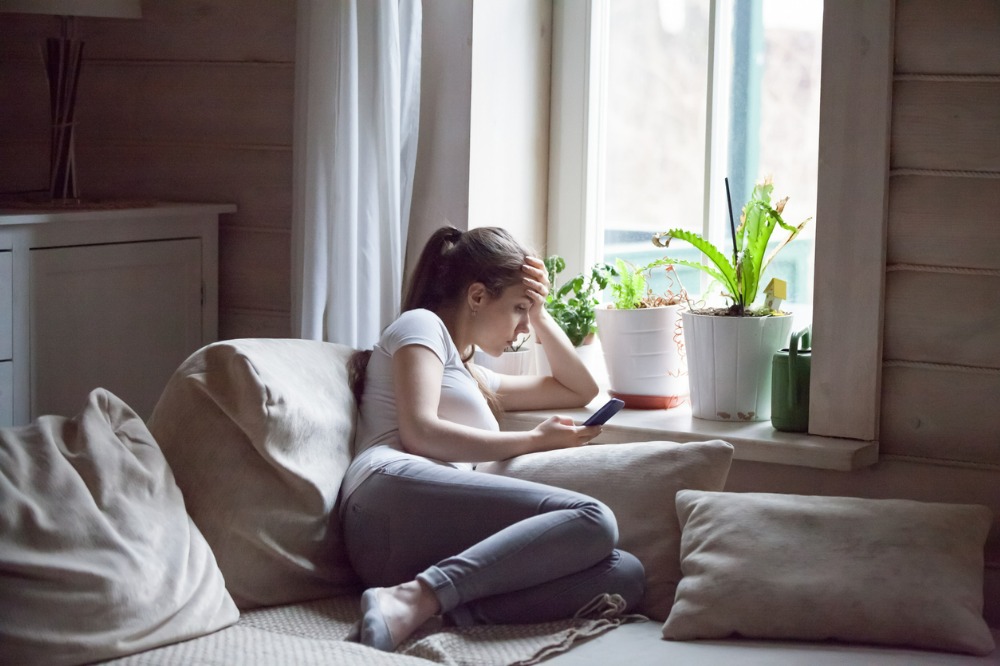
Young Victorians were the hardest hit by the COVID-19 pandemic when compared to their state and territory peers, according to a new Mission Australia survey.
A total of 18,486 young people who took part in the ‘Young Voices of the Pandemic: Youth Survey COVID Report 2020’ responded to the question: ‘In the past year, what is the biggest issue that you have been dealing with? What do you think needs to be done about it?’.
According to an analysis of 953 responses, 17-year-olds were most likely to say their education was severely impacted by the pandemic and more than one third (34.4%) of respondents who reported COVID-19 and education was their top personal concern were living in Victoria.
Almost half (43.9%) of the young people who revealed personal concerns in relation to the impact of COVID-19 on being and feeling isolated were living in Victoria. Nationally, more than two thirds of those reporting mental health concerns due to COVID-19 were young females (68.9% of females compared with 23.9% of males).
Young people affected by COVID-19 described disruptions to their everyday lives as making them feel worried and stressed and without access to their usual supports.
“These findings make clear the breadth and depth of the toll that COVID-19 has had on young people living in Australia,” Mission Australia’s CEO, James Toomey said.
“Major disruptions to education, increased isolation from peers, family and community, and mental health concerns understandably featured heavily within young people’s responses.”
Toomey said the severe impact of the pandemic on young Victorians in particular is not unexpected, given these young people endured Australia’s longest lockdown in 2020 and extended school closures.
“The pandemic is still in play. With lockdowns and tighter restrictions recently triggered in response to COVID-19, we must take heed of what young people told us about their experiences and solutions in 2020,” he said.
“We are very concerned that the impact of this virus will continue to have flow-on effects on young people’s lives now, and their futures. To best support our young people and mitigate any negative consequences they may face due to the pandemic, we must begin by listening to them and ensure that the right supports and systems are in place.”
How schools can help
The report by Mission Australia laid out a series of recommendations that schools and communities can use to help alleviate the pressures that young people are facing. They include:
- Support for young people to understand when and how to help themselves when feeling overwhelmed and stressed with study, when feeling isolated and when experiencing poor mental wellbeing.
- Extra support for young people in schools to support their wellbeing and in completing final years of school during COVID-19 restrictions to make sure they can achieve their educational goals.
- Mental health prevention and early intervention supports delivered in flexible formats to address wellbeing issues that may arise during isolation periods.
- More services and resources to support the mental wellbeing of young people, including through schools and outreach programs.
Toomey said that while it might seem that the worst of COVID-19 is over, we’re not out of the woods yet.
“These findings reinforce that many young people in Australia completing their final years of school during COVID-19 restrictions may need extra support to achieve their goals,” he said.
“It’s encouraging to see governments are continuing to support the needs of young people, particularly at this challenging time. For example, just last week we saw the NSW State Government extend the Stay Healthy HSC Hub partnership with ReachOut.”
Toomey pointed to large gaps in the mental health system that have been laid bare by the pandemic, saying serious issues persist – especially for the vulnerable and marginalised – despite government investments in mental health.
“From the get-go, governments, services and organisations should prioritise engaging young people to design solutions that will best support them at this crucial time in their lives, backed with relevant and current evidence,” he said.
What young people are saying
“School and stress because of COVID, now possible uni course price increases so financial security as well. I just need more support and reassurance that I won't be put at a loss because of COVID.” (F, 17, NSW)
“Dealing with mental health and depression during COVID. Our school is not doing enough in terms of accounting for the abnormal state of the world when it comes to setting assessments - I have never felt so simultaneously stressed and unmotivated. There has been an extreme lack of allowances for COVID and online learning so I am consistently stressed about school - on top of being stressed about the world.” (F, 17, VIC)
“It has been pretty hard to stay motivated in schoolwork and life in general during the pandemic and quarantine. I would say that this is the biggest issue, as it has a ripple effect on other parts of my life.” (M, 17, VIC)
“Feeling isolated. With a single, working mother and not a lot of family and a small school it is easy to feel alone. Being stuck at home this year hasn't helped. Corona has made it feel like I am helpless, and everything that is dying, I, as a young person, have no control over.” (F, 16, QLD)
“I feel like my anxiety has been the worst it has ever been this year. Being a year twelve student as well as the effects of quarantine in losing time with my friends and being laid off in my job I've experienced significant levels of stress. I just feel anxious all the time.” (F, 17, NSW)
“The biggest issue I've been dealing with is my mental health. My family home life hasn't been the best and it was getting harder to feel loved, supported and safe when going through the COVID 'holiday'/quarantine. I was contemplating suicide and I thought no one wanted me around.” (F, 15, QLD)


